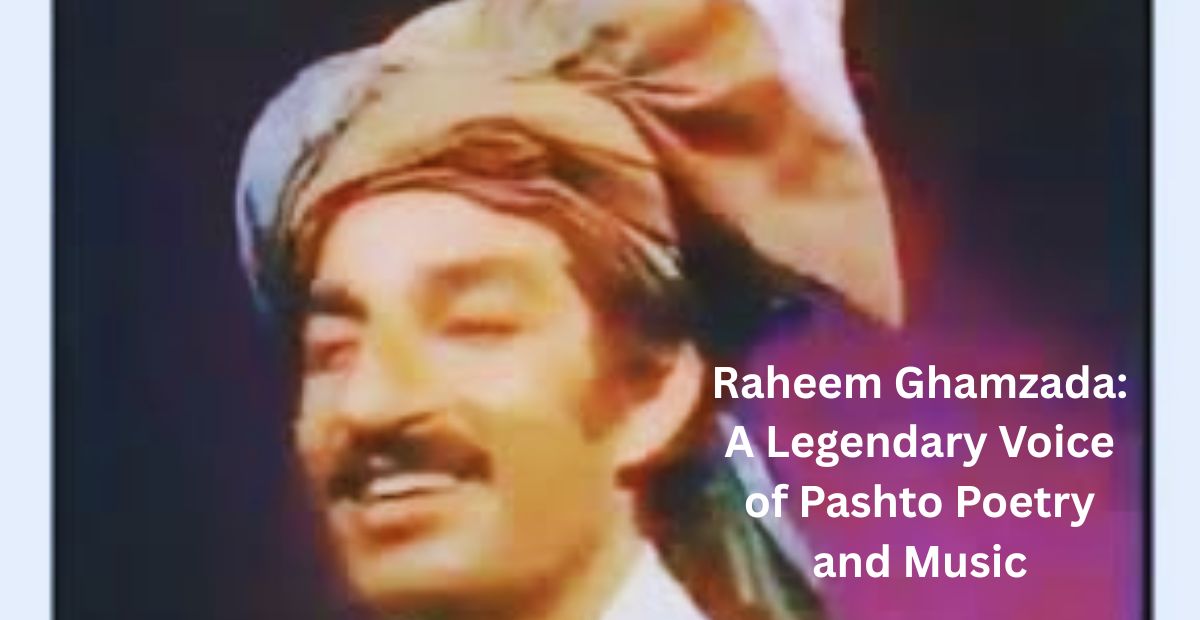Raheem Ghamzada (رحيم غمزده), born in 1939 in the scenic Khogyani District of Nangarhar Province, Afghanistan, remains a cherished figure in the rich cultural tapestry of Afghan music and poetry. As a pioneer of modern Pashto music, Ghamzada not only revolutionized the traditional soundscape but also immortalized Pashto poetry through his soulful voice and innovative compositions.
Early Life and Musical Journey
Ghamzada’s journey into the world of music began at a remarkably young age. By the age of 14, he had already started exploring the rhythms and melodies that would one day transform Pashto music. His deep-rooted love for his native language and culture laid the foundation for a career that would span over six decades.
A Career Dedicated to Art and Culture
For nearly 60 years, Raheem Ghamzada worked in the music department of Radio Television Afghanistan (RTA). His contributions include the recording of almost 200 songs, many of which are still celebrated in Afghan households. He stood out as the first Pashto singer to skillfully blend Eastern and Western musical elements with traditional Pashto folk tunes—a bold and creative step that brought a fresh flavor to Afghan music.
Ghamzada was not only a singer but also a gifted composer. Unlike many artists, he composed all of his songs, giving his work a distinctive and personal touch. His most popular compositions, including Zama Khkulay Janana, Dilbar e Man, and Stargo de Janan, remain timeless classics among Pashto-speaking communities.
The Poet Behind the Voice
Apart from his musical legacy, Ghamzada was a renowned poet. His poetry, often romantic and philosophical, was admired for its artistic depth and modern sensibility. He skillfully blended classical Pashto poetic traditions with contemporary themes, thereby making poetry more accessible to younger audiences. His book of poems, titled Zama Khkulay Janana (زما ښکلی جانانه), was compiled and published by Professor Lal Pacha Azmoon of Kabul University.
Ghamzada also brought to life the verses of revered poets like Ghani Khan and Rehman Baba, using his voice to interpret and preserve their literary legacy.
Personal Life and Legacy
Raheem Ghamzada belonged to the Khogyani tribe of the ethnic Pashtuns and lived in the Angorbagh area of Jalalabad’s second district. He was a family man and left behind three sons at the time of his death.
After a long battle with cancer, Ghamzada passed away on 16 December 2011. He was laid to rest in his hometown, Khogyani District, leaving behind a cultural legacy that continues to inspire generations.
Remembering a Cultural Icon
Ghamzada’s unique ability to merge traditional Pashto poetry with modern musical elements has solidified his status as a cultural icon in Afghanistan. He is remembered not just as a singer or poet, but as a visionary who brought evolution to Pashto music and enriched Afghan literature.
His life’s work is a testament to the power of art in preserving language, identity, and heritage. Today, artists across Afghanistan and the wider Pashto-speaking world continue to draw inspiration from Raheem Ghamzada’s legacy.
Tags: Raheem Ghamzada, Pashto Music, Afghan Poetry, Pashto Singer, Afghan Folk Music, Ghani Khan, Rehman Baba, Nangarhar Artists, Jalalabad Music, Pashto Songs
Would you like help formatting this into a blog or uploading it to a platform like WordPress?
